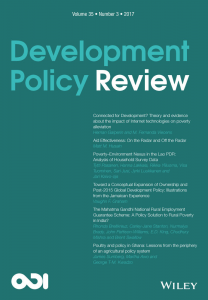Alternative to the school-to-prison pipeline
In my last post I discussed the role the school-to-prison pipeline plays in increasing the gap in minority education. The consequences of zero tolerance school policies are many including stigmatization, dropping out of school, and/or getting a juvenile record. Some schools have begun to change their responses to deviance in schools by going away from zero tolerance policies and towards restorative justice models. Restorative justice is a proactive approach requiring wholesale cultural change in the punishment orientation of the school...



1728-4457/asset/PopulationCouncilLogo.jpg?v=1&s=03074651676b98d6b9d0ef1234bd48fe7ff937c3)
1754-9469/asset/society_affiliation_image.gif?v=1&s=9197a1a6ba8c381665ecbf311eae8aca348fe8aa)